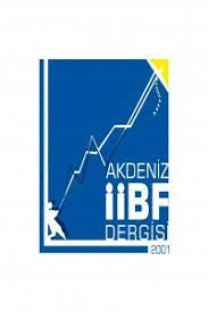Dünya Ticaret Örgütü Kısıtları Kapsamında Tarımda Fark Ödeme Desteği ve Türkiye İçin Transfer Etkinliği Uygulaması
Bu çalışmada, Türkiye’nin kısa dönemde uygulayabilmesi amacıyla alternatif bir tarım politikası senaryosu geliştirilmektedir. Senaryo, Dünya Ticaret Örgütü’nün tarım sektörüne ve dış ticarete ilişkin son yaptırımlarını dikkate alarak oluşturulmakta ve fark ödeme sistemini temel politika aracı olarak benimsemektedir. Çalışma, Türkiye için stratejik öneme sahip olduğu düşünülen buğday ve şekerpancarı yanında, Türkiye’nin arz açığı bulunan ve önemli endüstri bitkileri olduğu düşünülen pamuk ve ayçiçeği üzerine odaklanmaktadır. Politika senaryosunun ampirik etkileri transfer etkinliğinin hesaplanması ile bulunmaktadır. Tarım alanları mülkiyetinde, tarım sektörü işgücü piyasasında ve girdi kullanımında büyük boyutta değişiklikler beklenilmemesi transfer etkinliğinin kısa ve orta dönemde fazla değişmemesine ve genel olarak sektör dışına gelir transferinin yüksek olmasına yol açmaktadır.
Agricultural Deficiency Payments in the Context of World Trade Organization's Regulations and Calculation of Transfer Efficiency in Turkey
In this study, an alternative short-term agricultural policy scenario is developed for Turkey. The scenario is structured accordingly with the World Trade Organization’s recent impositions with respect to agricultural sector and international trade and it places deficiency payment system as the main support policy instrument. The study focuses on wheat and sugar beet due to their strategic importance and on sunflower and cotton as well due to excess demand in the domestic market and as these are the two main industrial crops. Transfer efficiency measure is used to forecast the impact of policy scenario. Since a major and radical change is not expected in the ownership status of agricultural lands, in the agricultural labor market and in input usage, the transfer efficiency does not differ significantly from short to medium term and there is a significant income leakage from the agricultural sector.
___
- ÇAĞATAY, S. ve TEOMAN, Ö. (2006) Restructuring Sugar Beet Market in Turkey: Increasing Transfer Efficiency via Decreasing Distortion, New Medit, (3), p.4-15
- ÇAKMAK, E., KASNAKOĞLU, H. ve YILDIRIM, T. (1998) Fark Ödeme Sisteminin Ekonomik Analizi, Tarımsal Ekonomi Araştırma Enstitüsü Çalışma Raporu 1998-3, Ankara.
- DEMİRCİ, S. (1998) Destekleme Alımı ve Fark Ödeme Sisteminin Refah ve Dağılım Etkilerinin İncelenmesi, Tarımsal Ekonomi Araştırma Enstitüsü, Yayın No. 36, Ankara.
- DEWBRE, J., ANTON J. ve THOMPSON W. (2001) The Transfer Efficiency and Trade Effects of Direct Payments, American Journal of Agricultural Economics, Vol.83, No.5, p.1204-1214.
- HELMBERGER, P.G. ve CHAVAS, J.P. (1996). The Economics of Agricultural Prices, New Jersey: Prentice Hall Inc.
- HELMBERGER, P.G. (1991) Economic Analysis of Farm Programs, New York: McGraw-Hill Inc.
- INNES, D.R. (1990) Incomplete Markets and Government Agricultural Policy, The Quarterly Journal of Economics, November.
- OECD, (2004). Assessing the Relative Transfer Efficiency of Agricultural Support Policies, Paris.
- OECD, (2002). The Incidence and Income Transfer Efficiency of Farm Support Policies, Paris.
- OECD, (2001). Market Effects of Crop Support Measures, Paris.
- OECD, (1996). Factors Conditioning the Transfer Efficiency of Agricultural Support, Paris.
- ŞAHİNÖZ, A., ÇAĞATAY, S., TEOMAN, Ö. ve KIYMAZ, T. (2005). Tarımda Yeni Politika Arayışları “Fark Ödeme”, TZOB Yayını, Ankara.
- ŞEKER İŞ SENDİKASI, (2008) Şekerde Özelleştirme Gerçeği Raporu.
- TKB (Tarım ve Köy İşleri Bakanlığı), 2005. II. Tarım Şurası Sonuç Raporu, 29 Kasım-01 Aralık 2004, Ankara.
- TUİK, (2004). Tarım Sayımı 2001, Ankara.
- http://www.tuik.gov.tr/VeriBilgi.do.
- http://plan9.dpt.gov.tr/plan9.htm.
- http://www.fapri.org/tools/outlook.aspx.
- http://www.wto.org/english/tratop_e/agric_e/mod_ag_22jun_e.doc.
- http://www.wto.org/tratop_e/agric_e/agchairtxt-feb08.e.doc
- http://www.wto.org/tratop_e/agric_e/agchairtxt.
- ISSN: 1302-9975
- Yayın Aralığı: Yılda 2 Sayı
- Başlangıç: 2001
- Yayıncı: Akdeniz Üniversitesi
Sayıdaki Diğer Makaleler
Konaklama İşletmelerinde Kadın Yöneticilerin Cam Tavan Algısı: Antalya İlinde Bir Araştırma
Fulya SARVAN, Nilgün ANAFARTA, Nuray YAPICI
Ferihan POLAT, Hüsniye AKILLI, Funda KEMAHLI, Kadriye OKUDAN
Enflasyon Hedeflemesi ve Dalgalı Döviz Kuru: Bazı Ülke Deneyimleri
'Modern Prens'ten 'Post-Modern Prens'e :Gramsci'nin Siyasal Kuramı Üzerine
